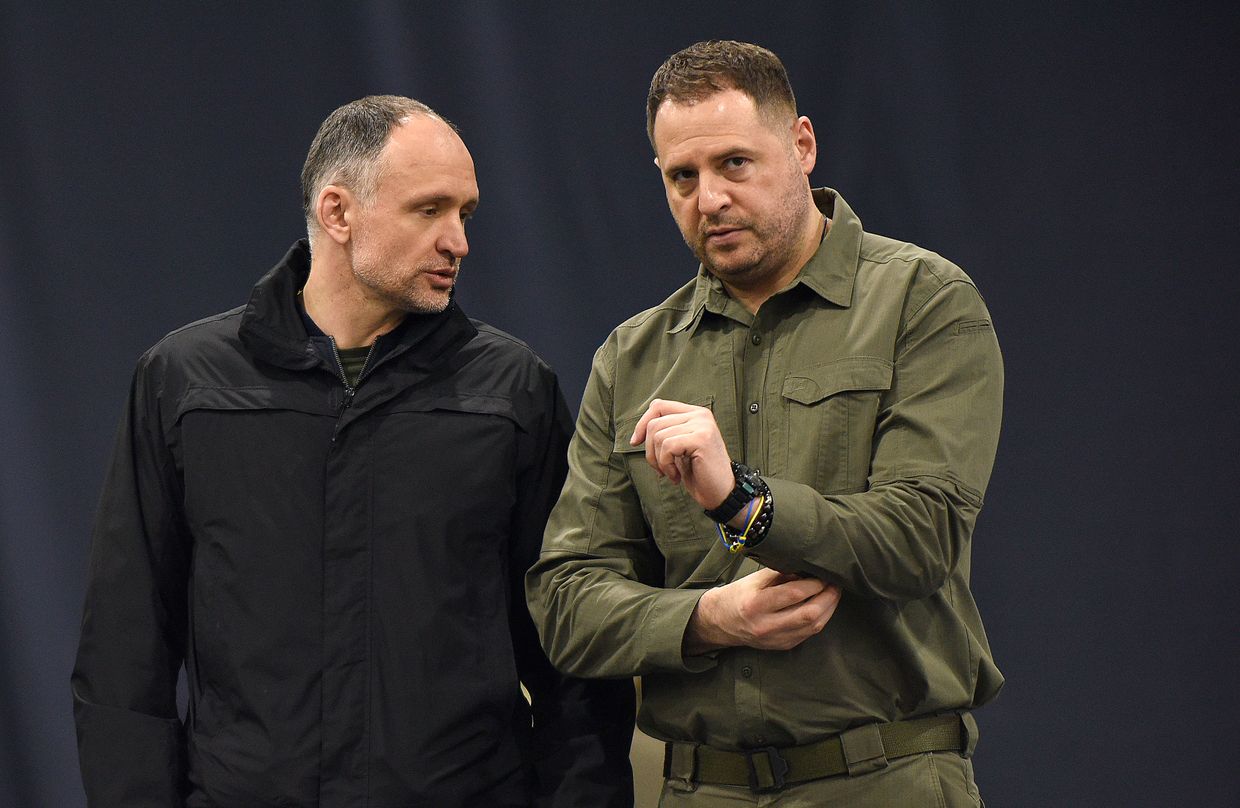Who is Viktor Pavlushchyk, newly-elected head of key Ukrainian anti-corruption agency?

Viktor Pavlushchyk was chosen on Feb. 25 as the head of the National Agency for Corruption Prevention (NACP) - one of Ukraine's main corruption fighting bodies.
The Cabinet of Ministers has yet to formally appoint him as the head of the NACP.
Pavlushchyk is a detective at the National Anti-Corruption Bureau of Ukraine (NABU). He has been praised by anti-corruption activists and his former colleagues.
The NACP's main task is to run Ukraine's system for state officials' asset declarations - a key anti-corruption tool.
Meanwhile, there were some concerns about Pavlushchyk's own asset declarations during the contest. But the selection panel concluded that he had adequately addressed all the questions about his asset disclosures.
The contest for the job of the NACP's head received mixed reviews.
Anti-corruption activists criticized the selection panel for a lack of transparency but praised the eventual result. Matthew Murray, chairman of the panel, denied the accusations.
Pavlushchyk's background
The selection panel that chose Pavlushchyk included three experts nominated by the Ukrainian authorities and three experts nominated by Ukraine's international partners. If the votes were split evenly between the Ukrainian and international experts, the foreign ones' votes prevailed.
The candidates passed general knowledge, psychological, and legal knowledge tests. After that they also had interviews with the panel to check their compliance with ethics and integrity standards.
Pavlushchyk received the best results among all candidates for general knowledge tests and for essays on the strategic vision for the NACP.
He has a legal degree from the Security Service of Ukraine's (SBU) National Academy and a business administration degree from Kyiv National University.
In 2008-2015, he was an employee of the Security Service of Ukraine.
He became a NABU detective in 2015 and headed a unit that investigated cases against judges and prosecutors. Specifically, he was involved in investigating corruption cases against controversial Prosecutor General's Office investigator Dmytro Sus, discredited judge Pavlo Vovk, ex-Supreme Court head Vsevolod Knyazev, and judges of the Kyiv Court of Appeal.
In 2023, Pavlushchyk took part in contests to become the head of the NABU and a member of the High Council of Justice.
Vadym Valko, an expert at the Anti-Corruption Action Center, a Kyiv-based watchdog, told the Kyiv Independent that, according to his sources, Pavlushchyk had been an effective employee, and "it would be difficult" for the authorities to influence his work through pressure.
He has a good strategic vision for development, the right motivation, and good general skills, Valko added.
A source at the NABU who worked with Pavlushchyk also characterized him positively.
Meanwhile, there were some issues with Pavlushchyk's asset declarations.
Specifically, he did not declare that he was using his mother's apartment in 2015-2018. Pavlushchyk argued that there were no NACP guidelines that required declaring it at the time. He said that such guidelines appeared in 2019, and he included the apartment in his declaration then.
In 2016 Pavlushchyk also sold a Chery car for $2,000 at the time when such cars were sold at $7,700 on the market. He argued that the price was lower because the car was old and had technical problems.
Another issue was that his partner has obtained a cash gift of Hr 280,000 ($7,300) from her mother, a pensioner, to buy a car. Pavlushchyk said that her mother's savings from her retirement pension were enough to cover the cost.
Controversies around the contest
There were several controversies linked to the contest for the job of the NACP's head.
Vitaly Shabunin, head of the Anti-Corruption Action Center's executive board, criticized the selection panel for failing to provide specific reasons for choosing the final short-list of 10 candidates out of 24 and to publish each panel member's marks for the candidates' assignments.
The selection panel partially reacted to the accusations and publicly provided arguments for supporting or rejecting each of the 10 short-listed candidates during the final stage.
Murray, chairman of the selection panel, argued in a comment for the Kyiv Independent that the panel had "exceeded global standards for transparency and independence."
He said that the panel had decided not to publish specific arguments and panel members' scores for each of the 24 initial candidates because many aspects of the selection process were "qualitative, not quantitative." Murray also said that he was not sure if the publication of such arguments would comply with Ukrainian law and privacy standards.
He added that he was personally in favor of providing specific arguments or individual scores to candidates if they ask for them.
Valko also said that some of the panel members' votes were difficult to justify.
Specifically, all three members appointed by the Ukrainian government voted for Serhiy Hupiak, a controversial candidate, while all three members representing international organizations voted against him.
Anti-corruption activists had previously accused Hupiak of being a candidate promoted by the President's Office during the contest for the head of the NABU in 2023. He has denied the accusations of wrongdoing, while the President's Office did not respond to a request for comment.
Hupiak works as an investigator at the State Investigation Bureau, which has a highly controversial reputation.
Hupiak’s boss, State Investigation Bureau chief Oleksiy Sukhachov, was appointed by Zelensky in what anti-corruption activists consider to be a rigged contest in 2021.
The Khmelnytsky branch of the State Investigation Bureau, where Hupiak works, also destroyed secret materials in several major criminal investigations immediately after Russia launched its all-out invasion, the Prosecutor General’s Office said in July 2022. The case files are linked to several pro-Kremlin politicians, and their alleged destruction prompted speculation that treason or corruption is involved.
Hupiak's asset declarations were also controversial because most of his assets were funded by his parents, according to Radio Free Europe/Radio Liberty.
Another bizarre vote was the one on Dmytro Kalmykov, head of the NACP's anti-corruption policy department.
All three international experts supported him, while all three Ukrainian ones voted against him, prompting speculation that they rejected him due to his independence. Valko praised Kalmykov and said that he was Pavlushchyk's strongest competitor.
However, the selection panel discussed security concerns linked to the fact that Kalmykov's parents live in Russian-occupied parts of Luhansk Oblast. His brother has been convicted of financing terrorism in the occupied territories.
Kalmykov denied the accusations of wrongdoing against him and his brother and said that his brother had been convicted for transferring retirement pensions to pensioners in the occupied territories.
Murray denied the allegations that the Ukrainian authorities had interfered in the work of the selection panel.













